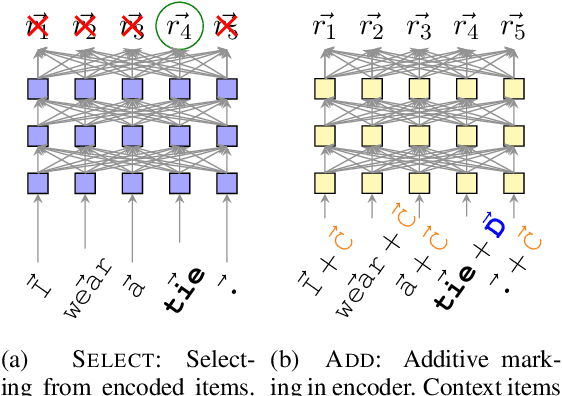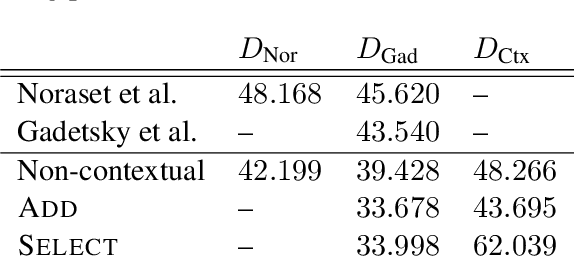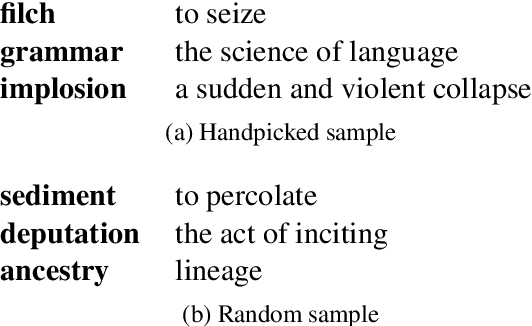Mark my Word: A Sequence-to-Sequence Approach to Definition Modeling
Paper and Code
Nov 13, 2019



Defining words in a textual context is a useful task both for practical purposes and for gaining insight into distributed word representations. Building on the distributional hypothesis, we argue here that the most natural formalization of definition modeling is to treat it as a sequence-to-sequence task, rather than a word-to-sequence task: given an input sequence with a highlighted word, generate a contextually appropriate definition for it. We implement this approach in a Transformer-based sequence-to-sequence model. Our proposal allows to train contextualization and definition generation in an end-to-end fashion, which is a conceptual improvement over earlier works. We achieve state-of-the-art results both in contextual and non-contextual definition modeling.
 Add to Chrome
Add to Chrome Add to Firefox
Add to Firefox Add to Edge
Add to Edge